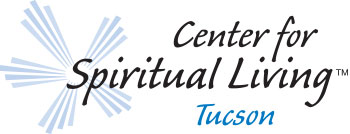Reflections
In 2009, I began my transition from an exciting but longish career as an engineering technician to that of professional teacher with an initial mixture of nobility and naivete’. Thanks to Texas Instruments and Pima County, I sailed through Pima Community College’s “Post Baccalaureate” teacher training and ensuing board exams. I then began plowing through a rough trail of real experience, beginning with an aborted internship, on into an extended, eclectic series of experiences with charter schools in Tucson and Prescott.
By 2017, after a series of Fall-Spring gigs, it had become clear that I was a round peg in a square hole as a rote classroom teacher. Driving up and down the Black Canyon Freeway, into Prescott, and the Desert Highlands on holiday sojourns, I found that the look and feel of the land, and of free time, welcomed and called to me.
● In the driver’s seat of my car: Why do I feel as a pauper in the desert heat?
● In the confines of my classrooms: I know the math. But how do students learn?
● In my recesses of my mind: Who I am and What Am I Doing Here?
These questions lead me to the alchemy that extracts my mind’s enigmas into conscious thought. In the vocabulary of our Science of Mind, it is the clarifying methodology and psychological practice that we have come to know as Spiritual Mind Treatment. At this juncture, my inner quest is thus illumined as spiritual questions: Am I turning within to Spirit, tuning into Truth, diving deeper into Love but want more? Am I prepared to manifest a meaningful, fulfilling, prosperous, joyful life?
If so, I must:
● Align with Universal Principles and activate awareness of the Divine Presence within
● Apply positive, practical, spiritual tools, including meditation and mindfulness, affirmations,neuroscience, and self-awareness in your daily life
● Discover a profound spiritual technology called Spiritual Mind Treatment
● Go within…deeper than you have before…and experience Truth
● Uncover and discard hidden beliefs, set yourself free
● Enter a safe, sacred container for true transformation
(From Foundations of the Science of Mind, CSL Dallas)
With consultation, prayer, and encouragement galore: I logged onto my job-search engine with “Math Work Prescott.” Voila, one job: A small Waldorf-inspired middle school, a walkable half-mile from decades-old friends house right there in Prescott, where I would room for that school year. Another dash up the Black Canyon Freeway, an entire afternoon with the headmaster, and I’m committed to a school year. I believe our teaching calls this manifestation or demonstration.
Two years in, evolving into a spiritually-oriented, Steiner-inspired teacher of both spectrum and gifted adolescents. And dipping into the deeper well: the psychology of learning for adolescents. Book studies, faculty collaboration and shared experience are in the treasure chest at the end of the rainbow. Here, the Waldorf-inspired “developmentally centered” teaching methodology: especially in the middle grades, where the teacher must see that emerging students are academically mature; thus solid with the concepts in concrete terms, before guiding them further into the abstractions: the hallmark of higher learning.
And now, further into the challenges of students’ learning in a troubled world. Cultural and psychological pressures on our children precipitate a plethora of learning and developmental difficulties. These distorting forces show up as hormonal and behavioral breakouts, precluding traditional classroom learning environments. Again, a more spiritual question: what’s this got to do with me?
Apparently, it’s time I begin teaching effectively, and continuing to learn myself, in a behaviorally challenged classroom. Thus, this next chapter comes with a real salary, more college in behavioral and psychological studies, and “more-better” encounters with forgiveness and learning, stemming from my own reflections on a disruptive adolescence, and war-torn early adulthood.
In Love’s Gift of Radical Forgiveness, Colin Tipping writes, “Radical Forgiveness challenges us to fundamentally shift our perception of the world and our interpretation of what happens to us so we can stop being victims.”
Teaching leads to more advanced questions, leading into deeper understandings of healing, forgiveness, and teaching. We learn to love ourselves and the culture in which we live, practicing and modeling:
● Self-control – with constructive thought and considerate behaviors with others
● Self-care – with nutrition, rest, and reflection
● Service toward the greater good.
In It’s Up to You, Ernest Holmes shows how to move from a life of “no” to a life of “yes.” We teach students that they, too, will be able to choose their future, because what we experience tomorrow depends on what we think and do today.
“It’s up to you,” Holmes writes.
It’s up to me. My Guide tells me “Keep up the Good Work,” and “Remember to stay tight with your teachers, (and Me)”
With Love — Robert




